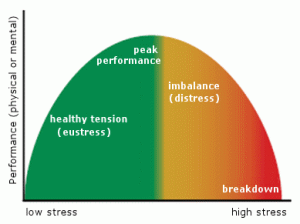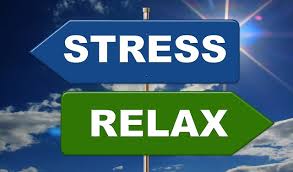A few weeks ago, we spoke about identifying your stress triggers. Now, let’s focus on ways which you can improve your reaction to these stressful situations.
Step 1: Look at your existing responses.
Look at the responses you currently undertake when you encounter a stressful situation. For example, if you get annoyed due to a rough day, pressure based on your financial situation or because of other matters, then monitor how you respond: do you get angry, irritated, shout in public, get physically involved? The first step to solving a problem is understanding that a problem exists.

Step 2: React better
When you have the time, take 15minutes to view Dr. Kelly Mcgonigals’ TED talk on How to Make Stress your friend. It’s fascinating, as it suggests that your perception of stress defines how stress effects you. For example, believing stress is bad means that people are more likely to have more ‘stress related illnesses’. However, if you perceive stress to be a good method to get yourself ‘ready’ for life’s challenges, it can serve you well by allowing you to form relationships with people (to help you through tough times) and releasing Oxytocin, sometimes called the ‘happy hormone’ which is associated with feelings like joy and ecstasy.

Step 3: Application
That being said, learn to improve your reaction to stressful events. Below are 5 popular tips to get started:
1. Count to 10 slowly: Sometimes you just need to step back and relax.
2. Be in Control: Realize that you can only control your actions, and not the action’s of others. Basically, you alone determine how you react according to the challenges life throws at you.
3. Get a stress ball: These are available in Sri Lanka in Pettah and numerous other locations. If you cant get them, consider buying them online (Upto Rs. 500) and since they are made of foam, just squeeze them whenever you get worked up. The idea is to transfer all your stress onto the foam ball. This is especially popular among working individuals!
4. Prioritize: If you work or are in university, learn to prioritize your workload. Order your activities based on the most important ones and create a work routine. Tackling the most pressing issues first will make life a little easier. Take a notepad, or use apps
5. Get healthier: if you’re not doing so already, learn to exercise often and eat healthier. You can run, go to the gym, play a sport, do yoga, get involved in Zumba-anything you like, but be consistent. Consitency in eating well and exercising gives you peace of mind and goes a long way towards improving your health
How do you manage stress? Tell us in the comments below!
Disclaimer: The views shared in this blog are based on the macro economic conditions & industry status quo as per the time of publishing.






